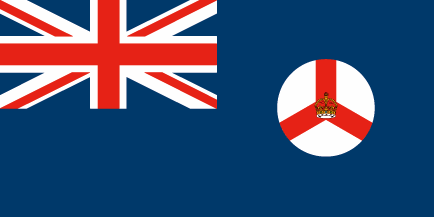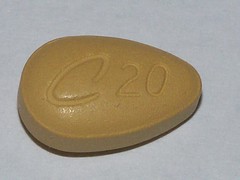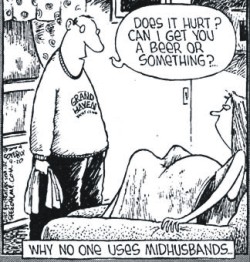Dumb kids spread AIDS
angry doc missed this story in the papers yesterday:
Specially for Normal stream
New Aids prevention scheme to target ‘high-risk’ students
ALICIA WONG
A NEW programme to stop the spread of Aids and other sexually-transmitted infections (STI) among youth here is being drawn up by the authorities — but what is different this time is that the programme is specifically targetted at students in the Normal stream, who have been identified by counsellors working with youth as being at “high risk” of contracting such diseases.
According to details in a recent government tender posted on the GeBIZ website, the class-based component of the programme will be customised to meet the needs of students from the Normal Academic and Normal Technical streams. The change, says the tender, is based on feedback from teachers and students. The new scheme is expected to reach schools in November or December.
The programme will also equip students with the skills to delay engaging in sexual intercourse, as well as issues related to self-esteem, handling peer pressure, teen pregnancy, abortion and contraception. Currently, the Health Promotion Board (HPB) has a general STI/Aids prevention programme for all Secondary 3 students. Observers say this may be the first time that a major health prevention programme here is being targetted based on an education-linked criteria.
Replying to queries, a HPB spokesperson told Today that the health board recognises there is no “one-size-fits-all” approach and this special programme is “part of HPB’s ongoing process to constantly upgrade and improve programmes targetted at youth.”
Several groups that work closely with youth support this pro-active approach. In fact, one group even suggested that the HPB design a similarly targetted prevention programme for younger children, extending to those in primary school.
Ms Hema Gurnani, the programme director at Wings Counselling Centre, which offers medical and psychiatric consultation to youth here, said that the rising number of youth here contracting HIV show clearly that current prevention programmes “are not as effective as they should have been.” Sexually transmitted infections among teenagers are rising on average by 3 per cent to 5 per cent annually, with more than 800 infected last year, according to the Department of STI Control.
“The high risk group are the normal students. I can identify that,” said Ms Sheena Jebal, the chief executive and founder of NuLife Care and Counselling, which according to its website, deals largely with youth-at-risk, school drop outs and ‘late bloomers’. Noting that proper guidance is required for these “academically challenged” students, Ms Jebal warned that they were often unaware of the serious consequences of their sexual conduct as they may lack knowledge about these infections.
Hence the need for a customised programme to ensure different students can relate to the dangers of Aids and Stis, said Ms Theresa Soon, assistant manager at the Action for Aids/DSC Clinic. “For instance, in a Special Assistance Plan (SAP) school you can be very academic, very technical, but for normal students you should use simpler terms and language,” she said. By customising lessons, instructors can use different approaches, and relavant case studies to engage the students, she added.
While not wanting to generalise or stigmatise, Ms Jebal said that in her experience, normal stream students are at higher risk as many come from dysfunctional families, with little or no support. “Thus (they) tend to go astray,” have low self-esteem and “it is a form of escapism for them when they turn to unprotected sex.” While normal stream students are the “high-risk group”, Ms Jebel said, express stream students are not exempt. She suggested customised programmes for these students too.
The AFA/DSC Clinic has seen an increase in youth – across all levels – seeking help, from 775 in 2006 to 820 last year. One factor that some counsellors say has increased the vulnerability of some youth to STI or Aids is family background, said Ms Soon, citing examples those students parents are often busy at work or do not speak to their children on these ‘taboo’ topics.
STI is also usually treated as a science subject so most students end up viewing STI as viruses or bacteria, and fail to see how it relates to their everyday life, said project coordinator at the DSC Clinic Mr Tan Ee Han. Some teachers also cover the topic quickly so students learn little. They also have difficulty broaching the topic with their boyfriend or girlfriend, he added.
However, beyond customising class-based lessons, Ms Jebal also feels that form teachers or school counsellors should zero in on students most likely to be engaging in sex and pay them greater attention as a mass programme does “not have much impact”.
Ms Gurnani from Wings Counselling Centre, one of the first organisations to start a sexuality programme in the primary schools, also suggested that HPB look at a separate preventive programme for these younger students. “It is a concern that younger children below 12 are involved in sex and parents are ignorant of the reality,” she said.
angry doc doesn't think this planned programme is discriminating in a bad way. It is, of course, discriminating, but at face value it seems a reasonable thing to do: you want to pitch your programme at a level which your audience can understand. It doesn't mean that a less academic programme will reduce the incidences of STI and HIV/AIDS in Normal Stream pupils, since we can't be sure that a lack of knowledge is what accounts for the rates to begin with, but it sounds like it's worth a try. The problem, as always when we target a specific group in health education, is with unintended stigmatisation of the very group of people we are trying to help.
What angry doc finds interesting about the article is the observation made by Ms Jebel:normal stream students are at higher risk as many come from
dysfunctional families, with little or no support. “Thus (they) tend to go
astray,” have low self-esteem and “it is a form of escapism for them when they
turn to unprotected sex.”
In other words, Ms Jebel recognises the fact that what puts certain young people at "high risk" is not their academic abilities or the lack thereof, but something else which we cannot easily recognise in a glance, something we do not officially label people by. But because we lack the will to classify people by their 'true' risk factor, we turn to convenient labels like what stream a child is in to tailor our health education programmes. Use of such 'surrogate markers' are sometimes necessary in healthcare, but we must always recognise that correlations do not always point to a cause-and-effect relationships. If we fail to remember this fact, we risk ending up believing that dumb kids spread AIDS, or that Malay kids are dumb.
Labels: in the news














